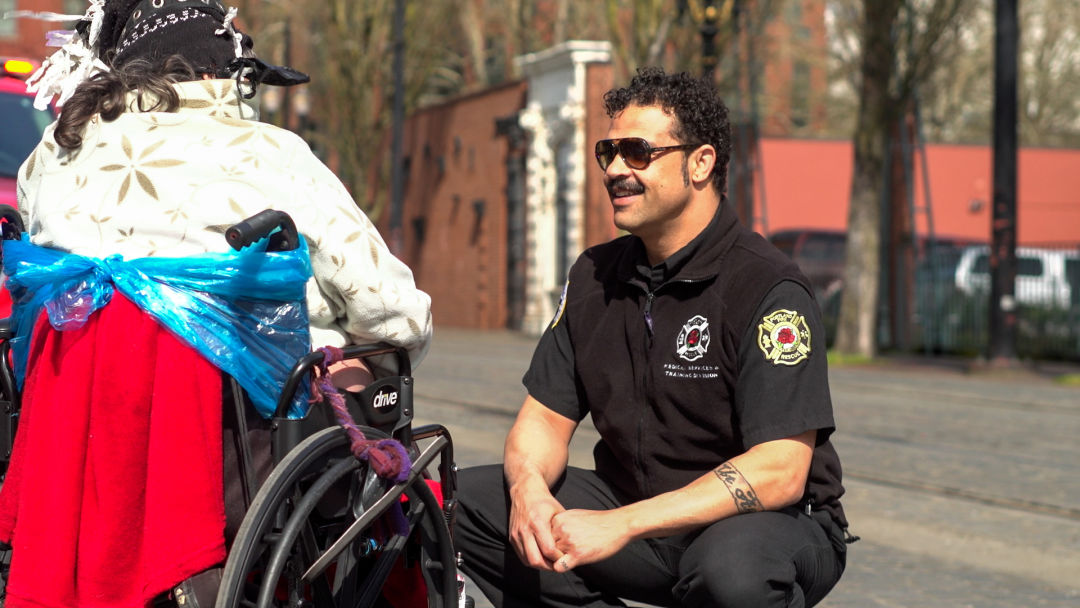Portland Street Response Just Got a Huge Budget Boost

Tremain Clayton of Portland Street Response
If you want to know what defunding the police might look like in 2020, Portland Street Response is a good place to start: six vehicles, stocked with first aid supplies, water, hygiene items, and more, each one carrying a paramedic and a crisis worker, ready to be sent on certain 911 calls in lieu of armed police.
They’re there to respond to calls such as those for what dispatchers classify as “unwanted persons.” Take the Portland man who lives on the streets and struggles with hearing voices (and who is well known to houseless advocates). When police show up, their arrival only escalates the man’s stress.
“He told me what he needs in that moment is a soothing voice,” says Kaia Sand, executive director of houseless advocacy group and newspaper publisher Street Roots. “That’s not what the police are able to offer, and even if they do offer it, they still have a badge and a gun.”
Sand and her colleagues know flashing lights, armed responders, and sirens can all offer inappropriate, even unwelcome, responses to someone having a mental health crisis, which is why the local nonprofit threw its weight behind Portland Street Response, an initiative to replace the police on such calls with trained crisis workers and paramedics.
City council members first earmarked $500,000 for the idea last November, as a pilot project. Then came a summer of Black Lives Matter protests, and Portland Street Response suddenly found itself funded to the tune of $4.8 million—a tenfold budgetary increase—as part of a package to invest money cut from the police into alternative programs.
With funding finally at their disposal, a team led by Tremaine Clayton, who coordinates the initiative on behalf of Portland Fire & Rescue’s Community Health Action Team, is now working on assembling a more realized Portland Street Response. COVID-19 has slowed down some of the wheels that were already in motion to launch what began as a pilot project for Lents—hiring and training are still under way—but the city hopes to have the project fully operational by early 2021.
“[We’ve been] sending the wrong resource, because that’s the only resource available,” says Clayton.
“The more people are tied up in the legal system, the harder it is to get both housing and employment,” adds Sand. “There’s so many times that people are encountering police, when they really shouldn’t be.”
And yet, figures from 2017 show more than 50 percent of those arrested by police in Portland in one year were unhoused.
“This really does come down to a defund and reinvest perspective,” says Sand. “Don’t fund the police to do this work—fund the right people to do the work.”
Listen: In this episode of Footnotes, Portland Monthly deputy editor Fiona McCann talks about the new Portland Street Response, how it differs from traditional police, and what we can expect when the team rolls out on February 16.




